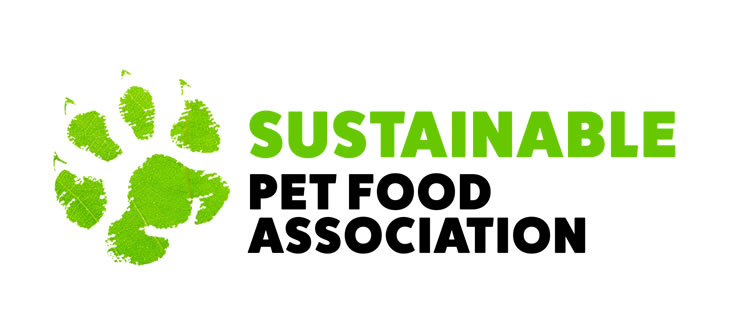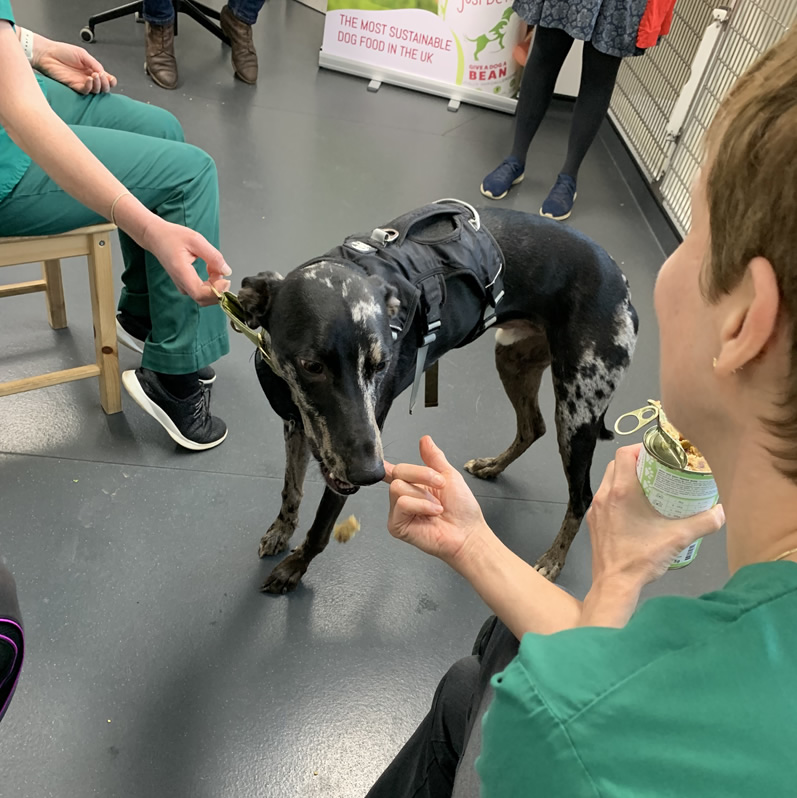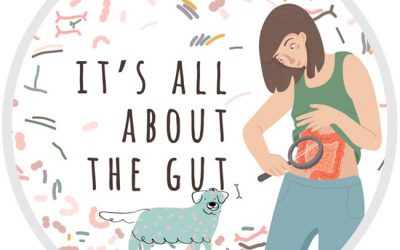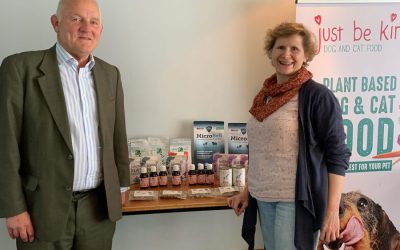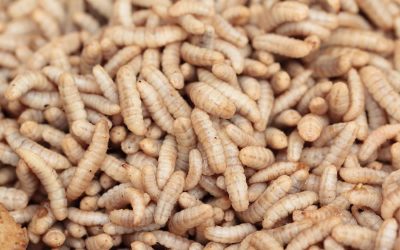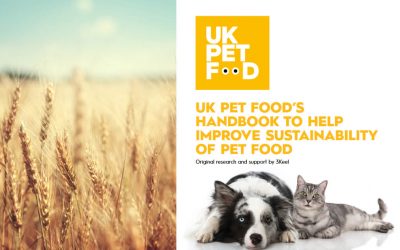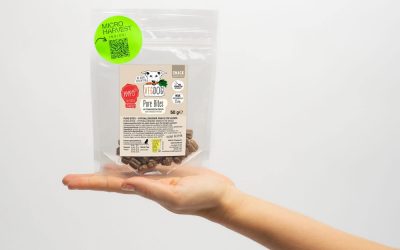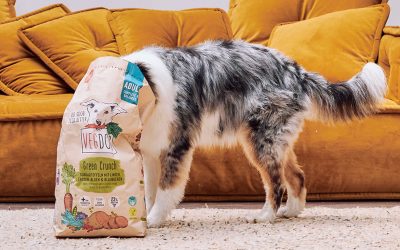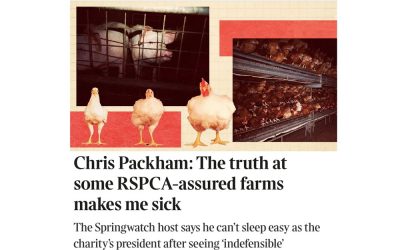Dr Jo works for an independent vet practice in Devon and she asked some very valid questions during a lunch and learn about plant-based dog nutrition at her practice. Her main focus in practice is around treating dogs with atopic skin conditions due to sensitivities, as well as helping owners manage dogs with IBD.
Her knowledge extends well into nutrition as a form of treatment for both of these conditions, so she was curious to find out how the recent surge in plant-based companies could be useful in managing these cases.
These are the queries she had and also her concerns surrounding plant-based dog nutrition.
There has been a concern about grain free diets that have high levels of pea protein and lentils being implicated as a possibe cause of DCM (Dilated Cardiomyopathy) seen in unusual breeds such as Golden Retrievers and Spaniels in the US. How do plant-based diets overcome this possible health risk?
This information is quite correct and has raised alarms with grain free pet food companies not having the valuable addition of both Taurine and its precursor Methionine added to the food when pea protein and lentils are used (See published research here). Both added ingredients are expensive to add and with profit margins in pet food being important, they have held back adding these amino acid nutrients to the grain free meat-based pet foods.
Well formulated plant-based grain free diets are fully aware that there has to be the valuable addition of Taurine, its precursor Methionine, as well as Vit B and Vit C for heart health, plus Omega 3’s from sustainable microalgae sources all to support a healthy heart of whatever breed is fed the food.
We even have grain free plant-based diets now that have NO PEA PROTEIN OR LENTILS in them at all such as Give A Dog A Bean that is a tinned food so ideal for sensitive dogs with storage mite (house dust mite) allergies from dry food, as well as those needing a truly novel protein diet. It uses highly sustainable and palatable faba bean protein as well as quinoa and hemp protein as its protein source.
What of the safety aspect of feeding a dog a nutritionally complete plant-based diet – have there been studies done to prove its efficacy?
Yes, no other pet food has had so many published papers done from around the world showing the safety of the food and its ingredients as shown here with to date 10 positive published studies.
There have been NO studies showing the efficacy and safety of raw feeding, in fact only negative impacts on the health of pets, owners and the environment as shown in this webinar by Prof Rob Foale.
Even insect-based pet foods have had no positive studies, also only negative ones as shown here.
What of the palatability of plant-based foods with fussy dogs? We are aware that Purina HA has to add in pure sugar to make their foods palatable to dogs (the 5th ingredient listed), do plant-based dog food companies do the same?
With the knowledge that Purina HA is highly processed and made from hydrolysed soya as a protein source, pure plant-based diets choose ingredients based on their nutrient profile….and dogs find these ingredients very, very palatable!
See the photos below of practice dogs Harley the Greyhound and Boris the rescue Shi-Tzu eating Give A Dog A Bean scooped out by hand by vet Dr Jo – they loved it! (Even one of the vet nurses tried it and really liked it!!!)
Ingredient list of Purina HA using non-sustainable fish oils as Omega 3 source and no transparency with ingredients –

Ingredient list of Give A Dog A Bean using sustainable algae as Omega 3 source and dogs can be fed on this diet indefinitely, not just as an exclusion diet –
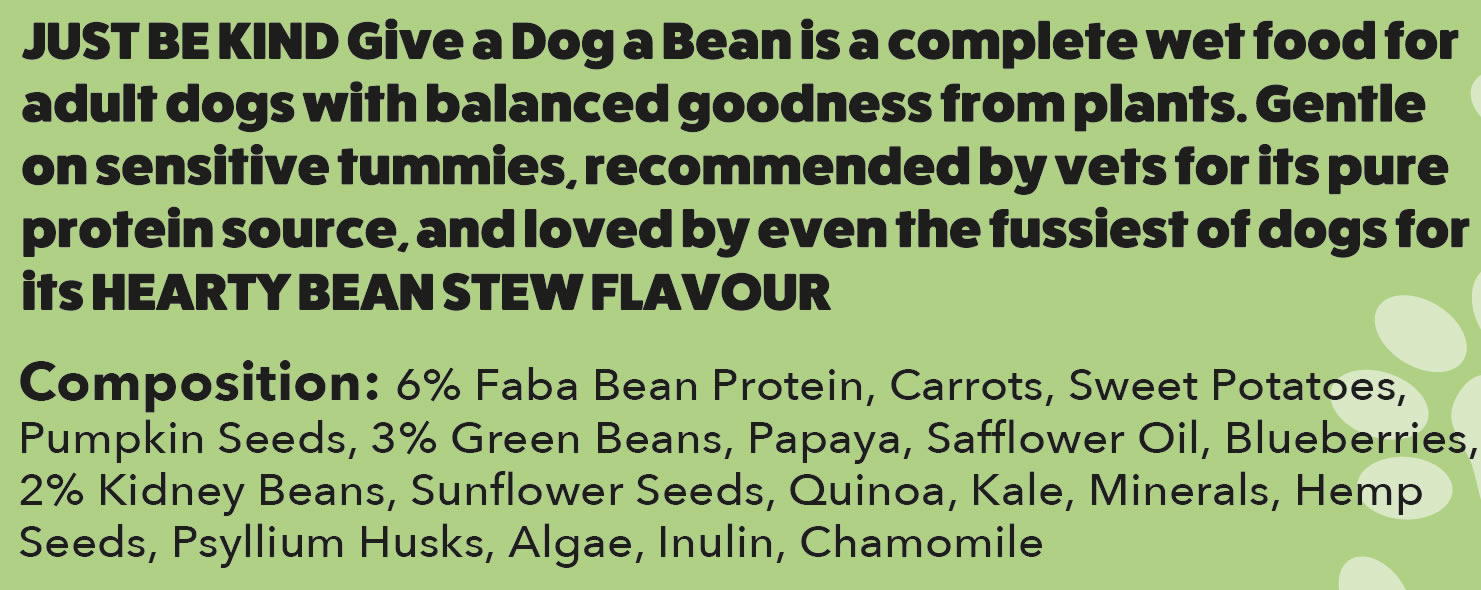
“Wishing you everything of the best with your talk.
I am so pleased I’ve discovered plant-based dog food as a vet and the excellent results I’ve had with my own Bull Terrier Polar with her IBS where no other diets were helping. Even her coat is lovely, soft and fluffy now too!
I have been recommending the food to clients and staff now! ”
Canine Microbiome Study Significant Findings
Dogs have adapted genetically to digesting starches and that explains why they do so well on a complete plant-based diet
Studies claim positivity with alternative pet diets
Many owners willing to consider alternative pet diets, studies claim with a high proportion of cat and dog owners now prepared to explore alternative, more sustainable diet options
Plant-based vs Insect-based dog food
Insect Protein-Based Diets as Potential Risk of Allergy in Dogs, and Higher Cost
Avian Flu Pandemic Risk from Raw Feeding
The APHA (Animal Plant and Health Agency.gov.uk) sends anyone interested in environmental matters, emails about looming threats. As a vet, this is what I have received recently in my email inbox - In my inbox yesterday 11th November - An Avian Influenza Prevention...
Raw dog and cat food fuelling spread of antibiotic-resistant bacteria
The very real and always present danger of this latest study yet again finding antibiotic-resistant bacteria in raw commercial cat foods!
UK Petfoods MUST Keep Up!
Using animal byproducts in meat and fish-based pet foods is NOT sustainable!
Cats dying after eating Avian-Influenza-contaminated raw pet food!
Does vegan cat food provide the solution?
Fermented Protein Pet Food – the Future?
Is precision fermentation our future way to feed not only our pets, but ourselves too? Yes it most certainly is!
Could our dogs or cats trigger an avian influenza pandemic?
As our memories of the last COVID 19 disappear, the potential for another pandemic looms and pets could play a role in transmitting it
Using microbial protein for the very first time in dog treats!
This first-of-its-kind protein is derived from bacteria that have been consumed by humans for centuries in foods such as kimchi, kefir, and sauerkraut
BVA says it is possible to feed dogs plant-based
The British Veterinary Association (BVA) has ended its opposition to (nutritionally-sound) vegan diets for dogs
The truth about ‘RSPCA Assured’ farms
The footage obtained from these farms, including distressing images of decomposing pigs, dying chicks, and salmon with missing eyes, is simply indefensible
